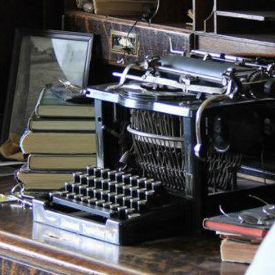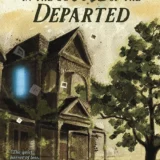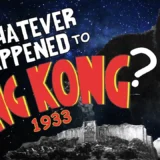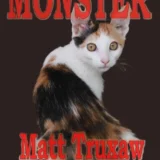Once you have written something with a great hook, a beginning, middle, and satisfactory ending… you don’t have those? Well, that’s a blog for a different day! The next task is to edit what you have written. Don’t think you don’t need to edit. If you think that, go on Amazon and check out some of the free stories for the Kindle. You can read them on your computer if you don’t have an e-reader. I’ll be here when you get back.
Everyone needs to edit, and the sometimes appalling offerings for self-published authors just makes it that much more important for you to edit. Every shoddy piece that the readers delete after a chapter or two makes it that much harder for you and I to sell our work.
I’ll cover editing in more detail later on, today we are starting at the beginning. Don’t edit as you write. Yes, I know I have said that before, but I will keep saying it. I am what is charmingly referred to as a pantser. More, I am an extreme pantser. I get a story in my head as if I were watching a movie, and all I am doing is transcribing it. I can steer, a little, but too much or I wind up blocked on it.
I know not all of you write like that. However, once you have plotted, and outlined, and are all set to write your scene, you don’t need to be backtracking every few sentences to second-guess what you just wrote. If you do this you will lose the flow and wind up with a very stilted story.
The other pitfall in editing is overdoing it. You can put so much polish on a story that it becomes unreadable. There is no such thing as perfection in writing, and trying to phrase every sentence “just so” will just lead to over writing. I took a class in college composition last semester (Long story. If you ask I might tell you.) and the professor told us during the first class about his novel, that he had been working on for twenty years. He was very proud of how well he had polished the first three pages. When I asked after class, he told me that was as far as he had gotten, and he had never published anything.
I discovered recently that editing a longer piece, such as a novel, requires breaking it down. My natural writing length seems to be a short story, so this was my first completed novel. Shorts I can edit in a sitting after I get them back from beta readers, then come back a few days later and edit once more, before I call them done. The novel was stopping me cold. I set it aside for months, trying to figure out how to tackle it, before the somewhat obvious answer was given to me.
Creating chapters made it possible for me to tackle one at a time, making notes when I found inconsistencies, and creating a file for each chapter made it easy to go back and find them to fix. Just don’t call these short segments ‘chunks’ or you will get teased by your writing group! They were quite right, it’s not a dignified thing to talk about chunky writing. Sounds like something the cat leaves on the carpet.
Once you have completed your editing, you may need to find a copy-editor. This is someone who can look for grammatical errors, typos, and spelling. The human brain gets so used to reading that we will begin to skip over those errors, automatically correcting them so quickly in our heads that we don’d notice them any longer. Your readers will, however, and will not be forgiving if the story is riddled with them. Usually a copy-editor charges a small fee, based on how many words the piece contains. Or you can trade with another writer, if you both have some skills in that area.
I haven’t found anyone that likes editing, but it’s a necessary skill, and like so many others, it will get easier the more you do it. You will learn the best method for you with practice, too. One thing that I value highly are my first readers, and all writers should have two or three of those. Treat them like the jewels they are, and they will make your editing job much easier by catching internal inconsistencies like a character’s name or personality changing midstream. Want to become a better writer and editor? Help someone by being a reader for them. The art of a good critique helps both of you.








One of the most important thing for anyone who is going the self-publishing route needs to keep in mind is that you have to be twice as good to get half the credit when it comes to copy edit mistakes.
You'll never get rid of EVERY error…it's statistically impossible to make a "perfect" book. But a small typo in a traditionally published book is noted – but for the most part it will be looked upon as a minor hiccup. When it comes to self-publishing, the expectation is that the editing will be horrid and so a typo found is held up as proof of the preconceived notion.
Also, keep in mind there are different kinds of editing: Content, copy editing, line editing, proofing (although not editing is related). I did a post on the various editing roles here on Amazing Stories for those that are interested in the differences: https://amazingstories.com/2013/02/pulling-back…
3) Your composition prof sounds like a real piece of work. Was he any good? Or was his lack of finished output representative of his ability as a writer?
Phil, as a compostion prof, I don't know. I got an A in the class, and I got to help some of the other (younger) students out with their work through critique. Honestly, I had to take it, and I wasn't too worried about it. I am NOT a grammar nazi, as you noted in this blog. I have trouble copy-editing my own work, primarily because I start to skim-read very quickly. But for the purposes of blogging I spend far less time on editing than I do on my fiction.
It should be noted that I spotted _one_ error among many paragraphs. Your draft copy, if that's what his is, is of high quality.
1) Third paragraph, last sentence. Should be "…not too much or I wind up blocked on it" — you are missing the "not".
2) As a Grammar Nazi (who doesn't know what a dangling participle is and doesn't worry about ending a sentence with a preposition, but is otherwise very tight), do I potentially make a good copy editor, or not? Or does something else determine that?
–Phil
Phil,
the blog entries here on Amazing Stories are treated as blog entries; some small amount of proofing is usually done by the author and some more may be done by the publisher (me), but we are generally following the rules of the road here regarding blogs, and that seems to be a bit more of a relaxed attitude towards spelling, punctuation, grammar and even the missing word or two from time to time.
Okay.